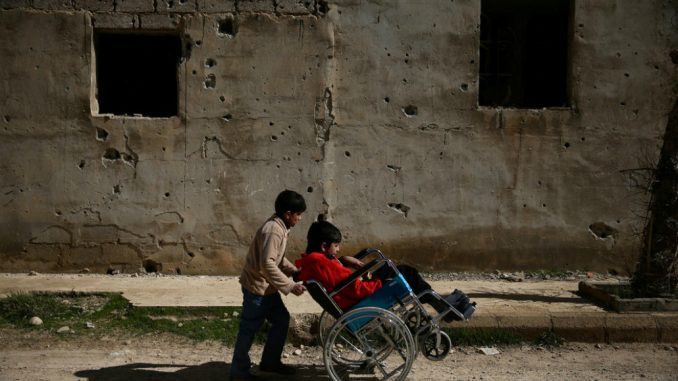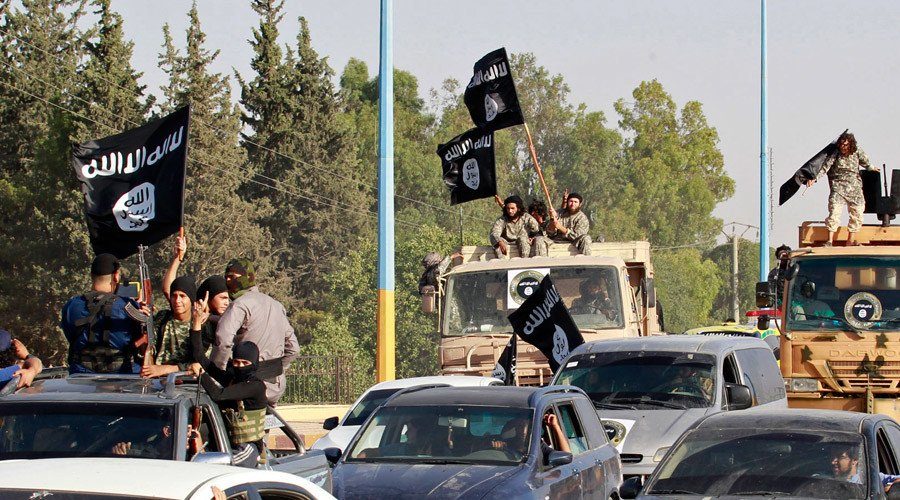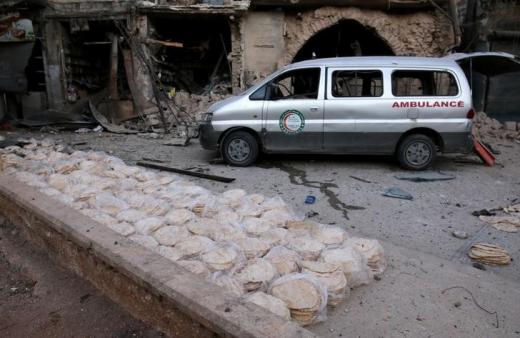
The United Nations said siege and intensive clashes around Syria’s capital have cut off 300,000 people from humanitarian assistance, adding that pauses in the conflict are needed to allow aid convoys to get to the area.
Fighting in and around Damascus has intensified in recent days after surprise attacks by rebel fighters in the northeastern parts of the city.
The escalation marked a bid by the rebels to relieve army pressure on besieged areas they control to the east of the capital, as rebels described it as a response to Assad regime’s campaigns on rebel-held areas despite the ceasefire.
The pro-government Al-Watan newspaper quoted an unnamed government negotiator as saying that the Damascus and Hama violence “make it clear and without any doubt that these groups and the countries who operate them want to… undermine any chance of finding a solution.”
However, a prominent opposition figure described the escalation of violence around Damascus as “self-defence.”
300.000 civilians in danger
“They are totally dependent on our supplies. Starvation will be just around the corner unless we get there in the coming weeks,” Egeland told Reuters in an interview after chairing the weekly Syria humanitarian taskforce meeting in Geneva.
The besieged Douma and Kafr Batna areas of rural Damascus contain 161,000 and 142,000 civilians respectively. Their food stocks have dwindled and informal supply routes have been cut.
“The increase in the fighting has disastrous effects on the civilian population,” Egeland said. “They haven’t had any supplies by the U.N. since October in Douma, and in the Kafr Batna area not since June of last year.”
The Syrian government is not giving the green light for convoys and armed groups are not guaranteeing the security of aid convoys, meaning that no aid can go in, Egeland said.
The U.N. is hoping to send an aid convoy on Friday to Wadi Barada, a valley outside Damascus where fighting raged at the start of this year. But in other areas apparent humanitarian progress has been stalled or reversed.
Food reached the besieged town of Madaya last week, but sniping by militias surrounding the town means it cannot be distributed, Egeland said.
Regime blocking humanitarian aids
However, a report, published on Tuesday by Physicians for Human Rights (PHR), found the Syrian government “deliberately” restricted humanitarian access to besieged populations.
Last year, the government agreed to a two-step aid approval process on humanitarian assistance. It streamlined a previous eight-step procedure, but PHR said the process has failed.
“As the conflict enters its seventh year, Syrian authorities continue to deliberately and illegally manipulate UN humanitarian access, arbitrarily limiting, restricting and denying aid deliveries in order to ensure the continued suffering of besieged populations,” the report said.
US Secretary of State Rex Tillerson said on Wednesday the US would set up “interim zones of stability” to help refugees return home in the next phase in the fight against Islamic State (ISIS) and al-Qaeda in Syria and Iraq.
Tillerson did not clarify where the zone would be set up.
“The United States will increase our pressure on ISIS and al-Qaeda and will work to establish interim zones of stability, through ceasefires, to allow refugees to return home,” the top US diplomat said, addressing a meeting of 68 countries gathered in Washington, DC to discuss the fight to defeat ISIS.
Egeland said any such proposal would need to be carefully studied, adding all returns to Syria had to be voluntary, protected and assisted.
“All zones have to be a net plus for the civilian population. Very often safe zones have created as many problems as they have solved, but it depends on the proposal and how it is executed,” he said.
“We’d be interested in discussing this further with the US and others.”
New round of peace talks
At the same time, UN-backed Syria peace talks resumed in Geneva on Thursday with a little hope of a breakthrough, as both pro-regime and opposition delegations have shown no flexibility in their stances.
De Mistura tried to strike an optimistic note when the previous round ended last month, insisting that “everything is ready” for the talks to move forward while reiterating his view that there is no military solution to Syria’s devastating civil war.
But analysts disagree with the UN envoy, putting the chances of compromise at an all-time low, due in part the regime’s increasingly strong position on the ground.
The UN’s deputy envoy, Ramzy Ezzeldin Ramzy met separately with government negotiators and the main opposition High Negotiations Committee (HNC) at hotels in the Swiss city.
“We have started today preliminary talks,” Ramzy told reporters after his meeting with Syrian President Bashar al-Assad’s representatives.
“We hope we will be starting substantive discussions tomorrow.”
A stalemate persists over most of the toughest issues, notably Assad’s fate, with the opposition insisting he quit power and the government declaring the president’s future off limits for discussion.
HNC delegation chief Nasr al-Hariri told reporters after meeting Ramzy that his camp was in Geneva to “guarantee the departure of Bashar al-Assad and his clique”.
The regime’s side was bound to his primary state too, insisting that the opposition’s delegation represents terrorist and that the political solution is a non-discussable matter.
“My assessment is that there will not be a formal political settlement at all,” Yezid Sayigh, a senior fellow at Carnegie Middle East Center, told AFP.
“Regime advances make this almost a certainty,” he added.
Since Russia’s military intervention in support of Assad in 2015, the regime has gained the upper hand, retaking the former rebel bastion of Aleppo late last year.
For Syria specialist Thomas Pierret, as “the regime continues to gain ground … there’s no reason for it to make the slightest concession.”
The Syrian crisis began as a peaceful demonstration against the injustice in Syria. Assad regime used to fire power and violence against the civilians and led to armed resistance. 450.000 Syrians lost their lives in the past five years according to UN estimates, and more than 12 million have lost their homes.



